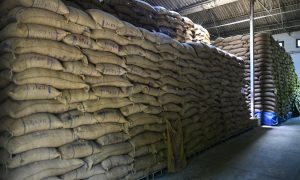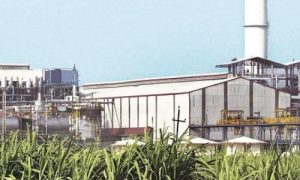Philippines Government lifts moratorium on new bioethanol plants

The Sugar Regulatory Administration (SRA) has lifted the moratorium on new and expanded molasses-based bioethanol plants in the Philippines to boost local ethanol and sugarcane production. This allows sugar mills to build or expand plants if their molasses output supports it. The move aims to stabilize molasses prices, benefit farmers, and reduce fuel costs.
MANILA, Philippines — The Sugar Regulatory Administration (SRA) is now encouraging the establishment and expansion of molasses-based bioethanol plants as it seeks to boost local production of the fuel blend ingredient and of sugarcane.
The SRA board, chaired by Agriculture Secretary Francisco Tiu Laurel Jr., issued an order that amended the current rules, particularly a moratorium on the application of molasses-based bioethanol plants in the country.
Under the new order, existing sugar mills that produce their own molasses as feedstock may put up a new bioethanol plant or distiller as long as the maximum rated capacity of the plant would not exceed their volume of molasses produced.
Furthermore, sugar mills with existing bioethanol plants may now apply for expansion if the molasses output of their own sugar mills has already surpassed their current maximum rated capacity. However, the increase in maximum rated capacity must not exceed the volume of molasses that their sugar mills produce on a historical basis.
The SRA board pointed out that the moratorium on the establishment of new and expansion of molasses-based bioethanol plants have restricted the expansion of bioethanol production in the country, to the detriment of the sugarcane industry.
The moratorium has been in place for almost a decade now.
The previous order that imposed the moratorium placed a “restriction” on the “practicality” of allowing existing sugar mills to put up their own bioethanol production plant or even expand the capacity of existing bioethanol plants, “to the detriment of free market and initiatives to increase sugarcane production,” according to the SRA board.
Bioethanol production has been identified by the government as one of the major markets for sugarcane since molasses, which is used to create bioethanol, is a by-product of the sugar milling process.
SRA administrator and CEO Pablo Luis Azcona said the establishment of new bioethanol plants in areas with surplus of molasses would lift the prices of the commodity to the benefit of sugarcane planters.
Azcona explained that there are currently sugar and molasses-producing areas in the country that do not have any ethanol plants following the imposition of the moratorium in 2016.
Because of this, Azcona added, the farm gate prices of molasses in these areas were the “lowest” since the by-product had to be shipped out to other parts of the country where an ethanol plant is present.
“The current SRA board believes that to provide equal opportunity and fair market for farmers and ethanol producers, companies which produce their own molasses may be allowed to construct a new ethanol plant,” Azcona told The STAR.
The SRA chief also noted that the construction of new ethanol plants may help reduce the price of gasoline since there would not be a need anymore to ship out some of the stocks elsewhere. Azcona noted that about a quarter of annual molasses production is being shipped out to other ethanol plants in the country.
Furthermore, the easing of the moratorium would also benefit sugarcane planters since the profit from the sale of molasses is being shared between sugarcane planters and sugar millers akin to sugar production.
“[It will] give [sugarcane planters] a more stable molasses price, plus if it lowers ethanol price, the farmers will enjoy better fuel prices,” Azcona said.
Under existing laws, bioethanol is used to blend with the gasoline sold in the domestic market.
In the previous crop year 2023-2024, the country produced 975,934.09 metric tons of molasses, about 15.2 percent higher than the 847,182 MT recorded in crop year 2022-2023, based on SRA data.
Millsite molasses prices as of Jan. 19 have fallen to P15,631.95 per MT from P18,449.5 per MT at the start of the current crop year 2024-2025 last September.
To read more about Ethanol Industry & Bio Energy News, continue reading Agriinsite.com
Source : Philstar Global














